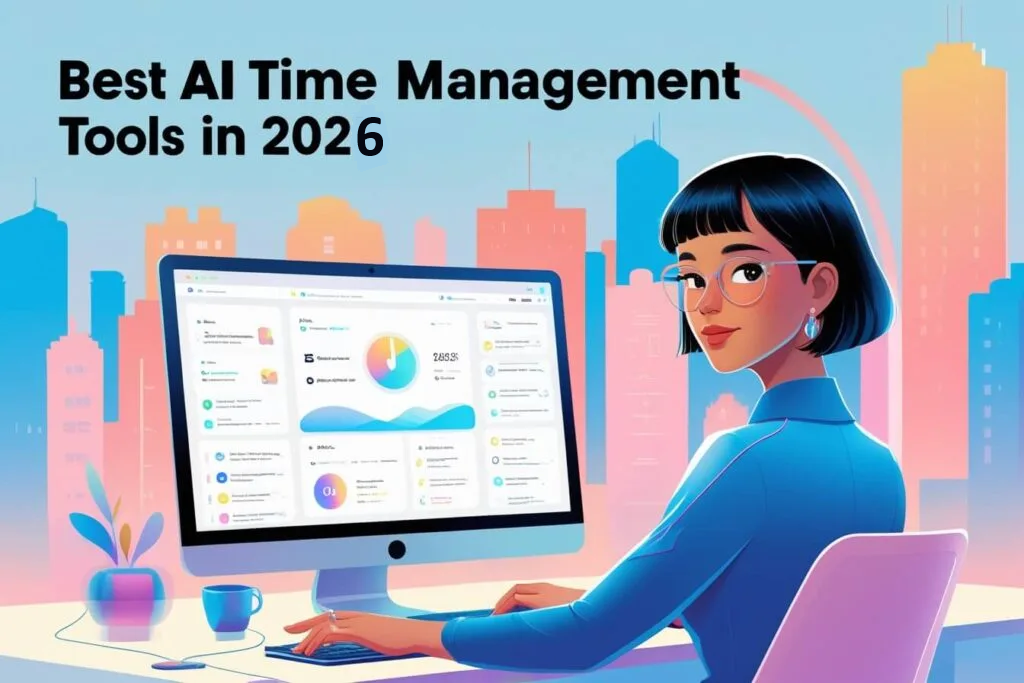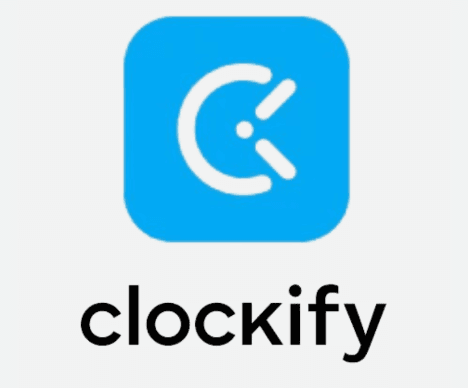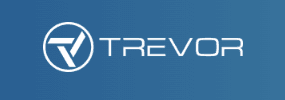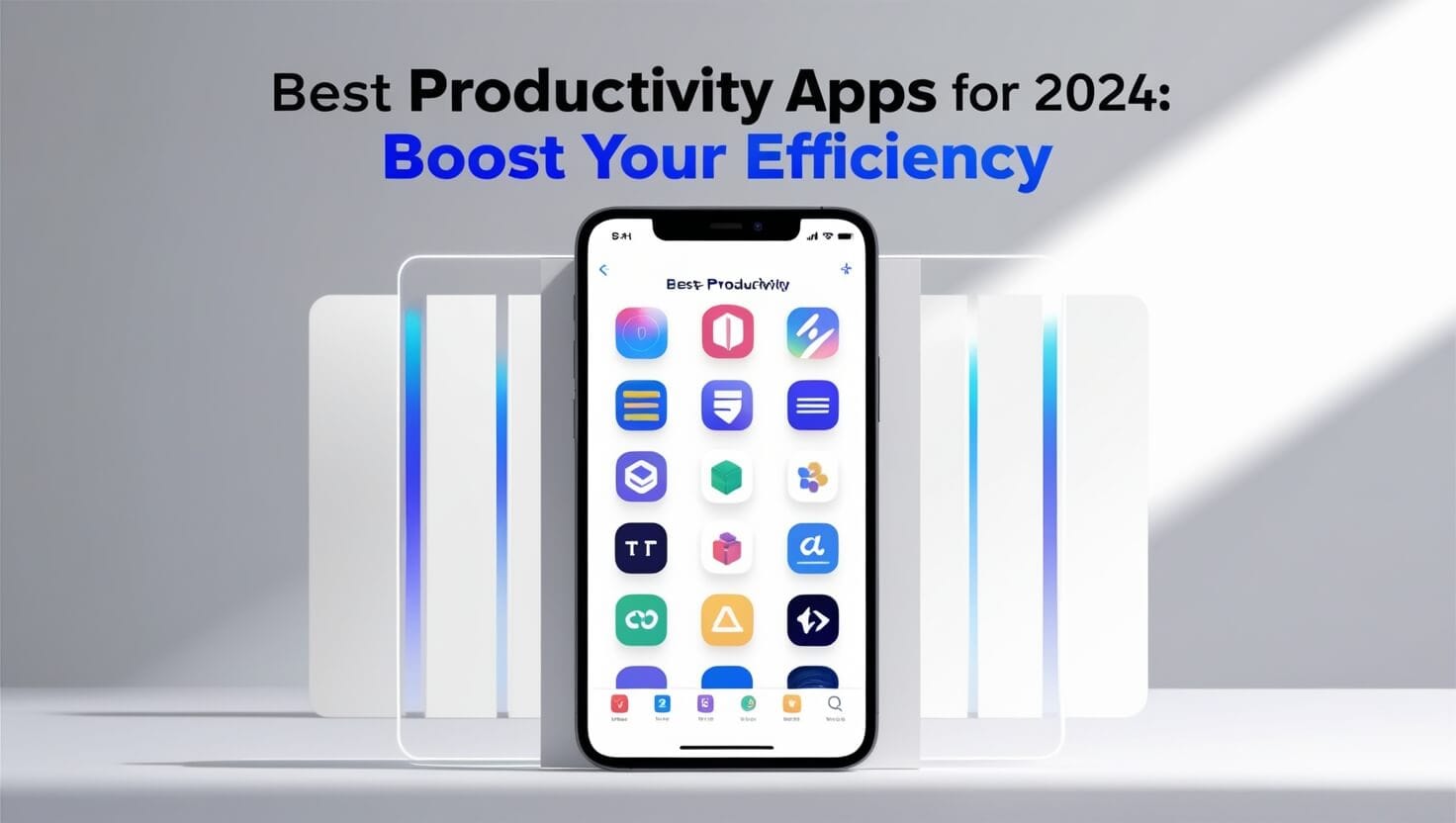
Remember when I used to juggle fifteen different apps just to keep track of my daily tasks? Yeah, that was a nightmare! I’d spend more time managing my management tools than actually getting work done. But here’s the thing – AI time management tools have completely revolutionized how we approach productivity in 2026.
According to recent studies, professionals who use AI-powered time management solutions save an average of 2.5 hours per day on administrative tasks. That’s nearly 13 hours per week! Can you imagine what you could do with an extra 13 hours?
I’ve been testing and using various AI time management tools for the past three years, and let me tell you, the transformation has been incredible. From automated scheduling that reads your calendar patterns to intelligent task prioritization that learns your work habits, these tools aren’t just fancy gadgets – they’re productivity game-changers that actually understand how you work.
AI Time Management Technology

AI time management tools leverage machine learning algorithms and natural language processing to understand your work patterns, preferences, and productivity cycles. Unlike traditional scheduling apps that simply store information, these smart time management solutions actively learn from your behavior and make intelligent suggestions to optimize your day.
The beauty of modern AI-powered productivity tools lies in their ability to process massive amounts of data about your work habits. They analyze when you’re most productive, which tasks take longer than expected, and even predict potential scheduling conflicts before they happen. I remember the first time my AI assistant automatically moved a low-priority meeting because it detected I had a pattern of being less focused after lunch – mind-blowing stuff!
What sets AI time management software apart from regular apps is their predictive capabilities. These tools don’t just react to your inputs; they anticipate your needs. They can automatically block focus time when you have important deadlines approaching, suggest optimal break times based on your energy levels, and even reschedule tasks when unexpected priorities emerge.
The integration capabilities of today’s AI time management platforms are also remarkable. They seamlessly connect with your email, calendar, project management tools, and communication apps to create a unified productivity ecosystem. This means less time switching between applications and more time actually getting things done.
Top AI Time Management Tools for 2026
Motion – The Ultimate AI Calendar Assistant

Motion stands out as one of the most sophisticated AI time management tools available in 2026. What impressed me most about Motion is its ability to automatically schedule tasks based on deadlines, priorities, and your personal energy patterns. The AI doesn’t just put tasks on your calendar – it finds the optimal time slots where you’re most likely to complete them successfully.
The smart scheduling feature has saved me countless hours of manual calendar tetris. Motion’s AI-powered scheduling algorithm considers factors like task complexity, your historical productivity data, and even buffer time for unexpected interruptions. I’ve found that projects I thought would take weeks actually get completed much faster because the AI breaks them down into manageable chunks and schedules them strategically.
Key Features:
- Automatic task scheduling based on deadlines and priorities
- Calendar optimization using machine learning
- Smart deadline management with proactive alerts
- Integration with 50+ popular productivity apps
- Real-time schedule adjustments based on changes
- Productivity analytics and insights dashboard
The pricing starts at $19 per month, which might seem steep, but considering the time savings, it pays for itself quickly. Motion’s AI time management capabilities have helped me reclaim nearly 10 hours per week that I used to waste on planning and rescheduling.
Clockify AI – Smart Time Tracking Revolution

Clockify AI has transformed from a simple time tracker into one of the most intelligent AI time management solutions I’ve used. The automatic time categorization feature is incredibly accurate – it learns from your patterns and automatically sorts activities without manual input. This is huge for freelancers and professionals who need detailed time reports.
What really sets Clockify AI apart is its predictive project estimation. The AI analyzes historical project data to provide realistic time estimates for similar future tasks. I used to consistently underestimate how long copywriting projects would take, but Clockify’s AI helped me realize I was missing buffer time for revisions and client feedback.
The intelligent reporting features have been a game-changer for client billing and productivity analysis. The AI identifies patterns in your work habits, highlights your most productive hours, and even suggests optimal work schedules based on your performance data.
Key Features:
- Automatic activity detection and categorization
- AI-powered project time estimation
- Smart productivity insights and recommendations
- Automated timesheet generation
- Team productivity analytics
- Integration with project management platforms
Clockify AI offers a generous free plan with basic AI time management features, while premium plans start at $7 per user monthly. The ROI is immediate, especially if you bill clients by the hour.
Reclaim AI – Focus Time Optimization

Reclaim AI specializes in protecting your deep work time, and honestly, it’s been a lifesaver for my productivity. This AI time management platform analyzes your calendar patterns and automatically blocks focus time when you need it most. The smart thing about Reclaim is that it doesn’t just block random time slots – it identifies when you typically do your best creative work.
The habit scheduling feature has helped me build consistent routines without the mental overhead of manual planning. I set up habits like “morning writing,” “client calls,” and “strategic planning,” and Reclaim’s AI finds the optimal recurring time slots that don’t conflict with meetings or other commitments.
One feature I particularly love is the smart scheduling links. When clients book meetings through my Reclaim link, the AI automatically suggests times that align with my energy levels and existing commitments. No more accidentally scheduling important calls during my usual afternoon slump!
Key Features:
- Automatic focus time blocking
- Smart habit scheduling and maintenance
- AI-powered meeting optimization
- Calendar analytics and insights
- Team synchronization features
- Buffer time management between meetings
Reclaim AI starts at $8 per month for individuals, with team plans available. The focus time protection alone has probably saved me from dozens of productivity disasters.
Trevor AI – Intelligent Task Scheduling

Trevor AI takes a unique approach to AI time management by focusing specifically on task scheduling optimization. Instead of just managing your calendar, Trevor’s AI decides when you should work on specific tasks based on your deadlines, energy levels, and available time blocks. It’s like having a personal productivity coach that never sleeps.
The drag-and-drop interface makes it incredibly easy to adjust AI suggestions when your priorities shift. I love that Trevor doesn’t force rigid scheduling – if something urgent comes up, the AI instantly reschedules everything else to accommodate the change while still respecting deadlines and commitments.
Trevor’s time estimation accuracy has improved dramatically with their 2026 updates. The AI learns from how long tasks actually take you and adjusts future estimates accordingly. This has eliminated the chronic overcommitment issues I used to struggle with.
Key Features:
- Intelligent task scheduling based on priorities
- Dynamic rescheduling when plans change
- Time estimation learning algorithms
- Calendar integration and sync
- Progress tracking and productivity metrics
- Collaborative features for team task management
Trevor AI offers a free plan with basic scheduling features, while premium plans start at $12 monthly. The peace of mind from never missing deadlines is worth every penny.
Clockwise Focus – AI-Powered Deep Work Protection

Clockwise Focus represents the next evolution in AI-powered productivity tools, specifically designed for knowledge workers who need extended periods of uninterrupted focus time. What makes Clockwise special is its team-wide approach to focus time optimization – it doesn’t just protect your individual focus time, it coordinates with your entire team to create collective focus periods.
The AI analyzes communication patterns, meeting frequencies, and individual productivity cycles across your organization to identify optimal focus time windows. I’ve seen teams increase their deep work time by 40% after implementing Clockwise’s AI time management system. The ripple effect is incredible – when everyone has more focus time, the quality of work improves dramatically.
Clockwise’s smart notification management is another standout feature. The AI learns which interruptions are truly urgent versus those that can wait until your focus session ends. It’s like having an intelligent filter that protects your concentration while ensuring important communications still reach you.
Key Features:
- Team-wide focus time coordination
- Smart notification filtering and management
- Meeting-free time optimization
- Productivity analytics for teams and individuals
- Slack and calendar integration
- Automatic focus session scheduling
The platform starts at $8 per user monthly for teams, with enterprise solutions available. For organizations serious about protecting deep work, it’s an essential investment.
Advanced AI Features Transforming Time Management
Predictive Scheduling and Smart Automation
The most impressive advancement in AI time management tools for 2026 is their predictive capabilities. These systems don’t just respond to your scheduling needs – they anticipate them. Modern AI scheduling assistants can predict when you’ll need extra buffer time, identify potential conflicts days in advance, and automatically suggest optimal meeting times based on attendee preferences and productivity patterns.
I’ve witnessed firsthand how predictive scheduling transforms productivity. My AI assistant now automatically blocks prep time before important presentations, schedules follow-up tasks after client meetings, and even suggests when to start working on projects based on historical completion times. It’s like having a crystal ball for your calendar.
The automation capabilities extend far beyond simple task scheduling. Smart AI time management platforms can automatically reschedule non-urgent meetings when urgent tasks appear, send proactive notifications about upcoming deadlines, and even negotiate meeting times with other AI assistants. This level of automation reduces decision fatigue and frees up mental energy for more important work.
Natural Language Processing for Intuitive Control
One of the most user-friendly improvements in AI time management software is advanced natural language processing. Instead of clicking through multiple menus and forms, you can simply tell your AI assistant what you need. Commands like “Schedule focused writing time for three hours tomorrow morning” or “Move all my Friday meetings to next week” are processed instantly and accurately.
The conversational interface makes these tools accessible to users who might be intimidated by complex productivity systems. You don’t need to learn complicated syntax or remember specific commands – just communicate naturally, and the AI figures out your intent. This has democratized access to sophisticated AI-powered time management solutions.
Intelligent Priority Management
Modern AI time management tools excel at dynamic priority management. They understand that priorities shift constantly in real work environments, and they adapt accordingly. The AI considers factors like deadline urgency, task dependencies, stakeholder importance, and your personal energy patterns to continuously optimize your schedule.
What’s particularly impressive is how these systems handle competing priorities. Instead of rigidly following predefined rules, the AI weighs multiple factors and makes nuanced decisions. For example, it might prioritize a less urgent task from an important client over a more urgent but less critical internal project. This contextual understanding is what separates advanced AI time management platforms from simpler automation tools.
Industry-Specific AI Time Management Solutions

Healthcare and Medical Practice Management
Healthcare professionals face unique time management challenges, and specialized AI time management tools have emerged to address these needs. Medical practice management systems now integrate AI scheduling that considers patient complexity, procedure duration variability, and provider expertise. These systems can predict which appointments are likely to run over time and automatically adjust schedules to prevent cascading delays.
I’ve worked with several healthcare clients who’ve implemented AI-powered medical scheduling systems, and the results are remarkable. Patient wait times decreased by an average of 35%, provider stress levels dropped significantly, and overall practice efficiency improved dramatically. The AI learns from patterns like which types of appointments typically require more time and adjusts future scheduling accordingly.
Emergency department scheduling has been particularly transformed by AI time management technology. These systems can predict patient flow patterns, optimize staff scheduling based on historical demand, and even suggest optimal times for non-urgent procedures to minimize resource conflicts.
Legal Practice Optimization
Law firms have embraced AI time management solutions to handle the complexity of billable hours, court schedules, and client demands. Legal-specific AI tools can automatically categorize time entries, predict case duration based on similar historical cases, and optimize attorney schedules to maximize billable efficiency while maintaining work-life balance.
The integration with legal research platforms and case management systems creates a comprehensive ecosystem where AI time management tools understand the full context of legal work. This enables more accurate time estimation, better resource allocation, and improved client service delivery.
Creative Industry Applications
Creative professionals – designers, writers, marketers – have unique productivity patterns that traditional time management tools often miss. Specialized AI-powered productivity platforms for creative work understand concepts like creative blocks, inspiration cycles, and the non-linear nature of creative processes.
These tools track productivity patterns specific to creative work, such as when you produce your best writing or design work. They can automatically schedule creative tasks during your peak creativity hours while relegating administrative tasks to lower-energy periods. The AI also learns to recognize when you might be experiencing creative blocks and suggests activities or breaks that historically help you overcome them.
Integration Strategies for Maximum Productivity

Building Your AI Time Management Ecosystem
The real power of AI time management tools emerges when they’re properly integrated into a cohesive productivity ecosystem. Instead of using isolated tools that don’t communicate with each other, successful users create interconnected systems where data flows seamlessly between applications.
Start by identifying your core productivity tools – email, calendar, project management, communication platforms – and choose AI time management solutions that integrate well with these existing systems. The goal is to create a unified information flow where your AI assistant has complete visibility into your work patterns and commitments.
I recommend taking a gradual approach to integration. Begin with one primary AI scheduling tool and gradually add complementary applications. This allows you to learn how each tool works and optimize your workflows without overwhelming yourself with too many new systems at once.
Data Privacy and Security Considerations
When implementing AI time management platforms, data security should be a top priority. These tools require access to sensitive information about your schedule, work patterns, and professional relationships. Choose providers that offer enterprise-grade security, transparent data handling practices, and compliance with relevant privacy regulations.
Look for AI time management tools that allow you to control data sharing and retention policies. Some platforms offer on-premises deployment options for organizations with strict security requirements. Always review the privacy policies and understand how your data is being used to improve AI algorithms.
Team Collaboration and Shared AI Insights
The most effective implementations of AI time management systems extend beyond individual productivity to enhance team collaboration. Shared AI insights can help teams identify optimal meeting times, coordinate focus periods, and balance workloads more effectively.
However, transparency is crucial when implementing team-wide AI productivity tools. Team members should understand what data is being collected and how it’s being used. The goal is to enhance collaboration without creating a surveillance environment that damages trust and morale.
Measuring ROI and Productivity Gains
Quantifying Time Management Improvements
One of the advantages of AI time management tools is their ability to provide detailed analytics about your productivity improvements. These systems track metrics like time saved on scheduling, reduction in meeting overruns, improved deadline adherence, and increased focus time duration.
I track several key performance indicators to measure the effectiveness of my AI time management system: hours saved per week on administrative tasks, percentage improvement in project completion times, reduction in scheduling conflicts, and subjective stress levels related to time management. The data consistently shows significant improvements across all metrics.
The financial ROI is often substantial, especially for professionals who bill by the hour or have high opportunity costs for their time. Even a modest time savings of 2-3 hours per week can translate to thousands of dollars in additional productive capacity annually.
Long-term Productivity Trends
AI-powered time management solutions excel at identifying long-term productivity trends that would be impossible to spot manually. They can reveal patterns like seasonal productivity variations, the impact of different meeting types on overall productivity, and the relationship between calendar density and work quality.
These insights enable more strategic decisions about work organization. For example, you might discover that you’re most creative in the early morning but most analytical in the late afternoon. Armed with this knowledge, you can restructure your schedule to align different types of work with your natural energy cycles.
Future Trends in AI Time Management

Emerging Technologies and Capabilities
The future of AI time management tools is incredibly promising, with several emerging technologies poised to revolutionize how we organize our time. Advanced biometric integration will allow AI systems to understand your physical and mental state in real-time, optimizing schedules based on energy levels, stress indicators, and cognitive capacity.
Voice-first interfaces are becoming more sophisticated, enabling completely hands-free time management. Future AI scheduling assistants will participate in meetings as silent observers, automatically scheduling follow-up tasks, setting reminders for action items, and even suggesting agenda improvements for future similar meetings.
Predictive analytics are evolving toward true forecasting capabilities. Next-generation AI time management platforms will predict major schedule disruptions weeks in advance, suggest proactive adjustments to prevent productivity crises, and even recommend career and project decisions based on long-term productivity patterns.
Integration with IoT and Smart Environments
The Internet of Things (IoT) integration represents a major frontier for AI time management technology. Smart office environments will automatically adjust lighting, temperature, and noise levels based on your scheduled activities and historical productivity data. Your AI time management system will coordinate with smart building systems to ensure optimal working conditions throughout your day.
Wearable technology integration is becoming more sophisticated, providing AI systems with continuous biometric data to optimize scheduling decisions. Future AI-powered productivity tools will understand not just what you need to do, but when you’re physically and mentally best equipped to do it.
Collaborative AI Networks
The most exciting development in AI time management solutions is the emergence of collaborative AI networks where different AI assistants communicate and coordinate with each other. Imagine scheduling a meeting where multiple AI assistants negotiate optimal times based on all attendees’ preferences, productivity patterns, and current workloads.
This cooperative approach to AI time management will eliminate much of the back-and-forth communication currently required for scheduling and project coordination. AI assistants will handle the logistics while humans focus on the actual work.
Implementation Best Practices
Getting Started with AI Time Management
Successfully implementing AI time management tools requires a strategic approach. Start by auditing your current time management practices and identifying the biggest pain points. Are you constantly running late to meetings? Do you struggle with task prioritization? Are you frequently interrupted during focus work? Understanding your specific challenges will help you choose the right AI productivity solutions.
Begin with one primary tool rather than trying to implement multiple AI time management platforms simultaneously. I recommend starting with an AI scheduling assistant if calendar management is your biggest challenge, or a smart task manager if prioritization is your main issue. Once you’re comfortable with one system, you can gradually expand your AI toolkit.
Data quality is crucial for AI effectiveness. Spend the first few weeks providing detailed input and feedback to help your AI time management system learn your preferences and patterns. The more accurate data you provide initially, the better your AI assistant will become at making helpful suggestions.
Common Implementation Mistakes to Avoid
One of the biggest mistakes people make when adopting AI time management tools is expecting immediate perfection. AI systems need time to learn your patterns and preferences. Be patient with the learning process and provide consistent feedback to improve accuracy over time.
Another common error is over-relying on AI suggestions without applying human judgment. While AI-powered time management solutions are incredibly sophisticated, they don’t understand context the way humans do. Always review AI recommendations and make adjustments based on factors the AI might not consider.
Don’t try to automate everything at once. Some level of manual control and oversight is important, especially in the early stages of implementation. Gradually increase automation as you become more confident in your AI time management system’s accuracy and reliability.
Training Your AI for Optimal Performance
The effectiveness of AI time management platforms depends heavily on the quality of training data they receive. Be intentional about providing feedback when the AI makes scheduling suggestions. If a suggested meeting time doesn’t work well, explain why. If a task takes longer than estimated, update the system with the actual duration.
Regularly review and adjust your preferences and priorities within your AI time management tools. As your role, responsibilities, and personal circumstances change, your AI assistant needs updated guidance to remain effective. Most platforms allow you to modify learning parameters and reset certain patterns if your needs evolve significantly.
Take advantage of advanced configuration options offered by sophisticated AI scheduling systems. Many tools allow you to set complex rules and preferences that help the AI make better decisions. For example, you might specify that you prefer not to schedule important meetings on Monday mornings or that you need 15-minute buffers between back-to-back calls.
AI Time Management Tools

The landscape of AI time management tools in 2026 represents a fundamental shift in how we approach productivity and schedule optimization. These aren’t just fancy calendar apps or simple automation scripts – they’re sophisticated systems that understand your work patterns, anticipate your needs, and actively help you make better decisions about how to spend your time.
From my experience testing and implementing various AI-powered productivity solutions, the benefits extend far beyond simple time savings. These tools reduce decision fatigue, eliminate scheduling stress, and create more space for meaningful work. The peace of mind that comes from knowing your AI assistant is continuously optimizing your schedule and protecting your focus time is invaluable.
The key to success with AI time management platforms is choosing tools that align with your specific needs and work style. Whether you need sophisticated calendar optimization, intelligent task prioritization, or team-wide productivity coordination, there’s likely an AI solution designed for your situation. The investment in learning and implementing these systems pays dividends in improved productivity, reduced stress, and better work-life balance.
As these technologies continue to evolve, we’re moving toward a future where time management becomes increasingly invisible and automatic. The best AI time management tools will handle the logistics of productivity while we focus on the creative, strategic, and interpersonal aspects of our work that truly matter. The future of productivity isn’t about working harder – it’s about working smarter with AI as our partner.


